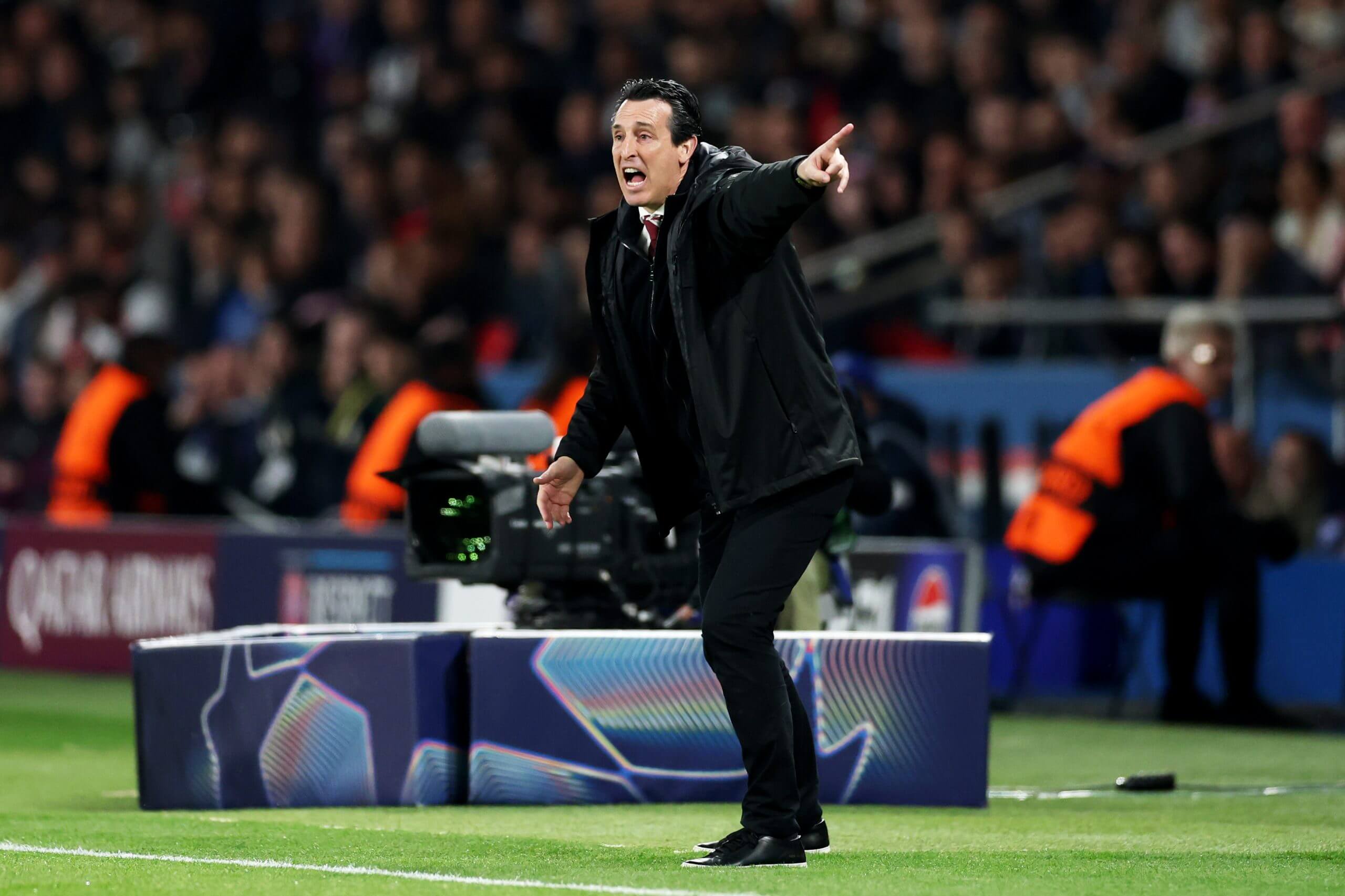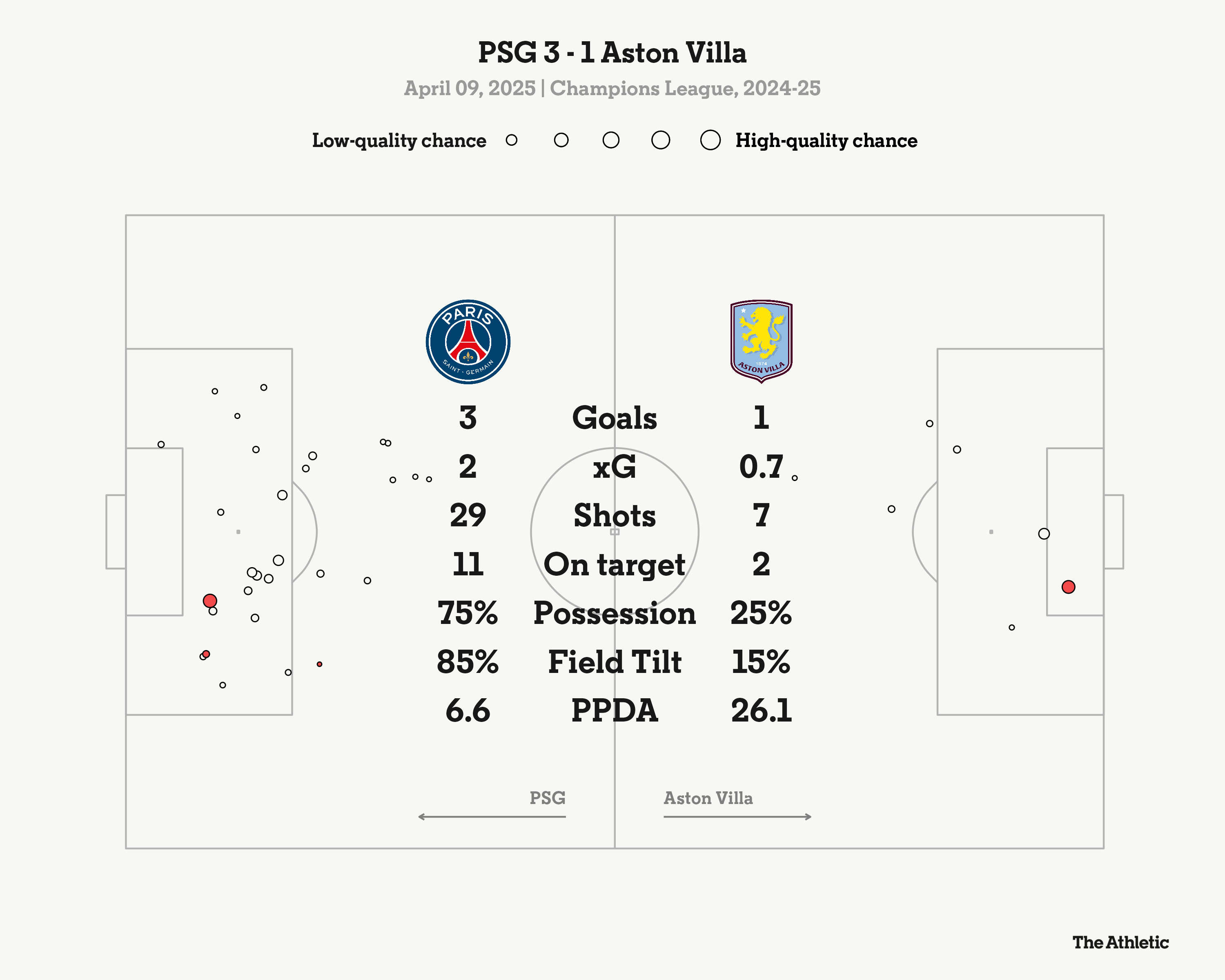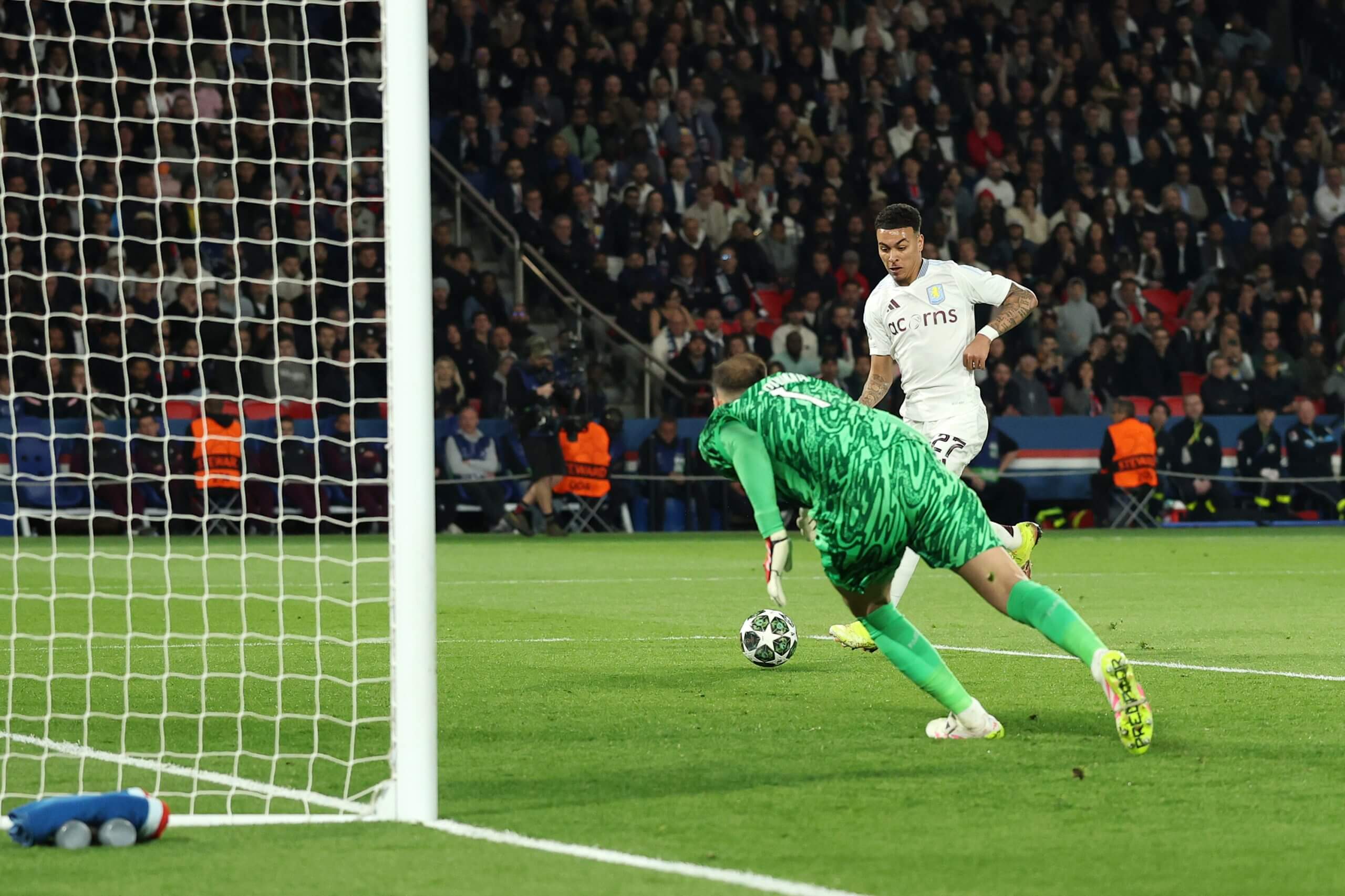
Does a team take greater or worse solace in knowing the other team was simply too good or that they were so powerless to stop it?
Unai Emery is a manager with a thirst for details and will, over the next week, scour the footage from the first leg and attempt to find ways to prevent, improve and overcome Paris-Saint Germain in the second leg of their Champions League tie.
Advertisement
Consistent gains and unwavering belief are what Aston Villa has been built on since his arrival two and a half years ago and has, more broadly, created an extraordinary transformation.
There is a steeliness to Emery after defeats. His no-excuse culture has fostered an inner resolve within his players where, like the Darwinian evolution theory, they must continue to adapt and grow or be left behind. Those characteristics will have to be depended on like never before ahead of the second leg.
Even when Emery drills down on the specifics and takes stock, there is unlikely to be one major regret from his return to Paris, nor one contrition over Villa’s strategy. Best laid plans and efforts can be undone by individual excellence or a generally superior team, like PSG were.
“The positive aspect? How we competed,” said Emery, his final, but most pertinent answer post-match.

(Michael Steele/Getty Images)
Villa lost 3-1 but were truly engulfed by PSG’s brilliance. Emery opted for the same lineup which beat Brighton & Hove Albion a week earlier but as is the critical, often overlooked ingredient to his managerial success, demonstrated that while a team can appear the same on paper, in reality instructions constantly change.
If he insisted the best way to control the intensity of Premier League matches “is through ball possession” then the inverse appeared true in the French capital. In the first ten minutes, Villa touched the ball twice in the attacking half — the fact they even had 15 per cent of possession felt generous.
Instead, Emery isolated the few weaknesses in Luis Enrique’s team. He wanted to exploit the spaces in the channels PSG’s adventurous full-backs left on transition. This materialised for Villa’s only goal, when John McGinn stole the ball from left-back Nuno Mendes and found Marcus Rashford, running forward and in sufficient room due to right-back Ashraf Hakimi essentially playing as an attacking midfielder for large periods.
Advertisement
Morgan Rogers was at the back post from Youri Tielemans’ low cross and for four fleeting minutes, Villa held the momentum.
Though against a group of vibrant, hungry players that hunt like wolves before fizzing and whizzing in possession, with relentless ball speed and intricate rotations, Villa could only make up for the deficit in quality and/or European pedigree through hard work.
One team was overwhelmingly dominant and the other, like a cyclist alongside a high-spec sports car, toiled to keep pace. PSG made 569 more passes, registered four times the number of shots (29 to seven) and had nine corners to Villa’s one.
However, for all their rhythm and flow, they did not create what Opta defines as a “big chance — “a situation where a player should reasonably be expected to score” — until the 92nd minute when Mendes broke beyond Villa’s back five to score their third.
Before then, PSG’s expected goal rate (xG) was 1.34; a number Villa’s coaching staff would have been reasonably happy with. The two other goals — from 27 shots — were generated by standalone artistry from their two wingers, Desire Doue and Khvicha Kvaratskhelia.

Red and blue flags shimmied at full-time as Villa’s players trudged off the pitch, visibly tired and in all likelihood psychologically, too. They were left gasping for air after being suffocated for large parts, if not all, of the contest. If this was Villa’s first big away fixture against a European powerhouse, it seemed a particularly acute welcome.
A Tifo sprawled above the PSG ultras displayed a skeleton with a flat cap, in tribute — more likely in provocation — of the television drama, ‘Peaky Blinders’ set in Birmingham. They whistled and howled every time Villa had the chutzpah to have the ball and rose to their feet each time one of their frontline drove dangerously down the flanks.
Advertisement
Villa were aware of PSG’s strengths in wide areas and constructed a system that saw the winger closest to the ball drop into defence to form a back five. The purpose was to provide cover against the looming, multi-faceted threats of Doue and Kvaratskhelia. Right-back Matty Cash was booked early and then substituted at half time for Axel Disasi, who was left in the unenviable position of being one-against-one against Kvaratskhelia. He was twisted inside out for the winger’s goal.
Emery tried to introduce three substitutes in the final quarter of an hour, but such was the sustained hellfire those on the field were trying to stave, Ian Maatsen — who essentially served as a second left back — Amadou Onana and Ollie Watkins were stranded on the touchline and waiting for the ball to go out for six minutes.
Emery shouted at Emiliano Martinez to kick long and hoped to take PSG back to Villa Park with only a one-goal lead. Shutting up shop was the intention which meant Mendes’ late strike felt a particularly cruel blow.

Morgan Rogers gave Villa a surprise – and brief – lead (Carl Recine/Getty Images)
Afterwards, the response from Villa players and staff centred on “belief.” It was the first word spoken on social media and the default answer for Emery.
“The last goal is a little bit disappointing because it is the last minute,” he said. “But it is not changing our mind or our belief. We have to win the next match.”
“There’s loads of belief in the changing room,” Rogers told TNT Sports. “We have nothing to lose, nobody thought we’d win the tie in the first place. Why not just go for it? We’ve definitely got the quality to turn things around. It’s not done yet.”
If the return leg is to be the end of the road, Villa are in reliable hands for what comes next. Their performance in Paris carried pride though undoubtedly not the quality their counterparts did.
Despite some external perception, Emery is an inherent optimist, though.
Advertisement
“We will win the next week I believe,” he declared, having relayed the same message to his dressing room shortly before. “Villa Park is our home. Hopefully, we can get stronger and get (our) duels better than we did.”
Emery will always endeavour to improve and find glory from the very depths of likely defeats. At Villa Park — where they are currently on an unbeaten league run of 15 games — his side can, and often do, beat anyone.
Yet beating this extraordinary, well-rounded PSG team would break new ground and give Villa Park its greatest night in generations. In Paris, it appeared one step too far.
(Header photo: Bertrand Guay/AFP via Getty Images)
This news was originally published on this post .






Be the first to leave a comment